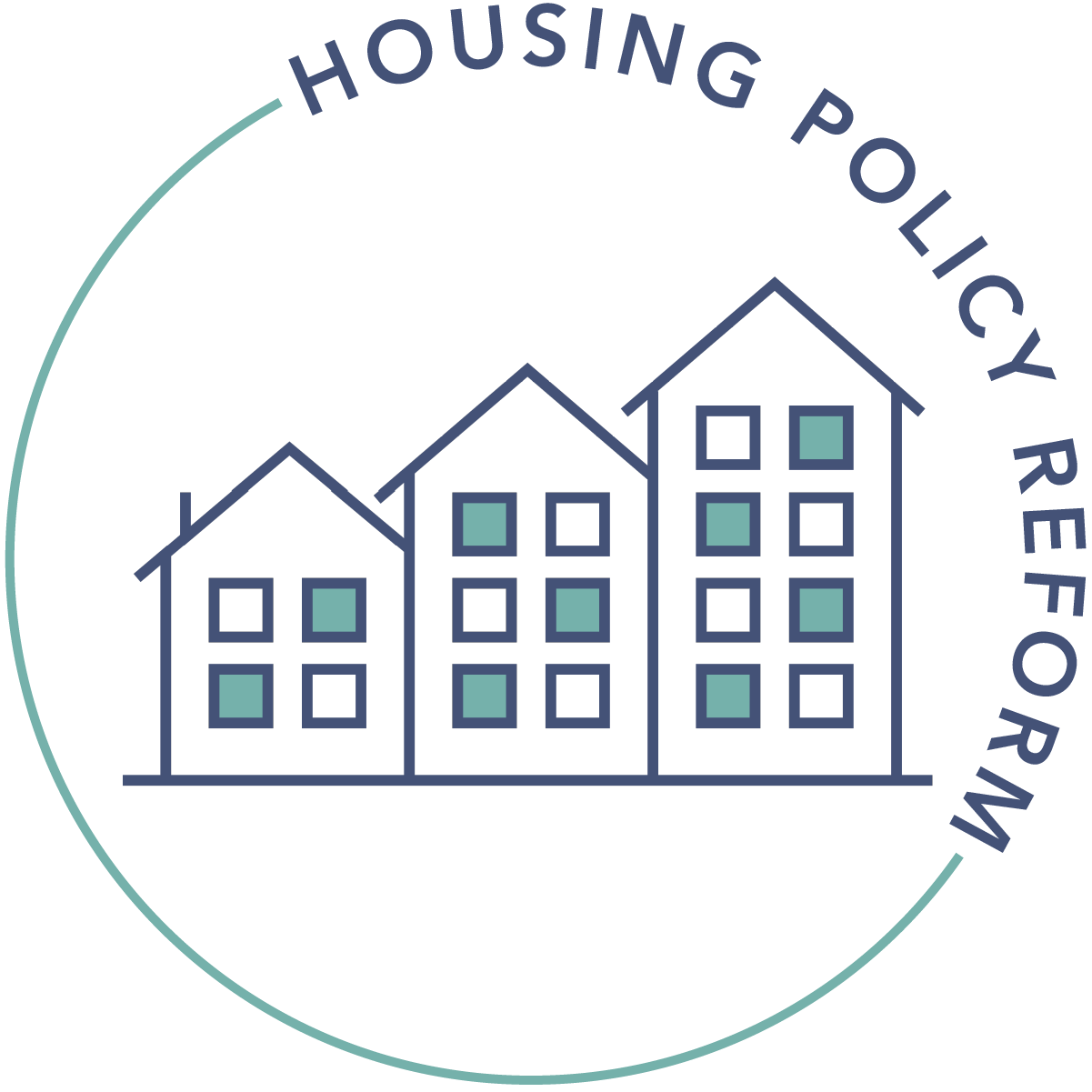Excessively restrictive local regulations on housing push people away from centers of economic activity, inhibit innovation, and raise costs for renters.

Housing Policy Reform
Note: As of March 2025, Land Use Reform has been renamed to Housing Policy Reform and merged into our Abundance & Growth focus area.
We seek to reduce the harms caused by excessively restrictive regulations on local housing.
Local laws often prohibit the construction of dense new housing, which has contributed to rising housing prices and lower affordability for renters and buyers.

Ratio of median house price and median household income in the US, 1967-2021 (US Census Bureau). House price data is MSPUS; median household income is from Income in the US Table D-1.
These price increases are pronounced in large, high-wage metro areas (e.g., New York, Boston, San Francisco, Los Angeles, Seattle, and Washington D.C.). More permissive policy which enabled a greater supply of housing in those areas could unlock value by:
- Encouraging economic growth through greater innovation and agglomeration.
- Increasing the earnings of individuals moving to high-wage jobs in those areas.
- Enabling more people to live in denser areas, which have lower carbon emissions.
- Redistributing wealth and income to lower-income households and supporting access to housing for lower earners.
Changing housing policy laws is unusually valuable because there is a huge amount of private capital and firms dedicated to building new homes. Removing restrictions on building — especially denser construction in cities — unlocks that capital to be deployed much more efficiently without requiring philanthropists or government to directly subsidize construction. Indeed, the evidence is clear that “upzoning” (removing restrictions on denser housing) can lead to increases in supply and reductions in prices, and several recent studies conclude that building new homes (even market-rate homes) tends to make housing more affordable, including for low-income households.
Considering these potential gains, we think that working toward more permissive housing policy from a public-interest perspective (as opposed to lobbying for specific developments) appears neglected in those key regions. We began making housing policy grants in 2015 and were early supporters of the YIMBY movement, which supports people to advocate for permissive zoning and development in their local areas. Since that time, we have seen significant growth in the movement and notable policy breakthroughs. Successes our grantees have been involved in include: the growth of Accessory Dwelling Unit (ADU) reform in California and Seattle, bills supporting middle housing and ADUs in Washington state, and further legislative success in California for housing on commercial corridors and removing parking mandates near transit.

Photo courtesy of California YIMBY
We have three main strategic themes within our housing policy reform grantmaking, supporting:
- Legislative advocacy and campaigning for housing policy reform (typically at the state level).
- Legal work to support the implementation of housing laws.
- The creation of data tools and research which support more and cheaper housing.
Most of our work has historically been focused on major US metro areas, though we are considering more work outside of the US.
The following Open Philanthropy staff oversee the Housing Policy Reform program.
Housing Policy Reform, at a glance
-
50+ Grants
Made -
$25+ Million
Given -
5 Focus Regions
